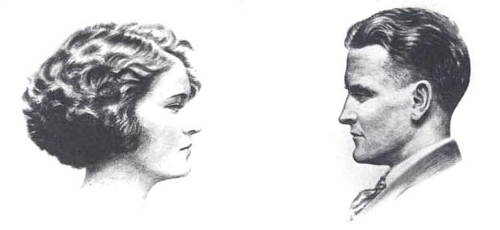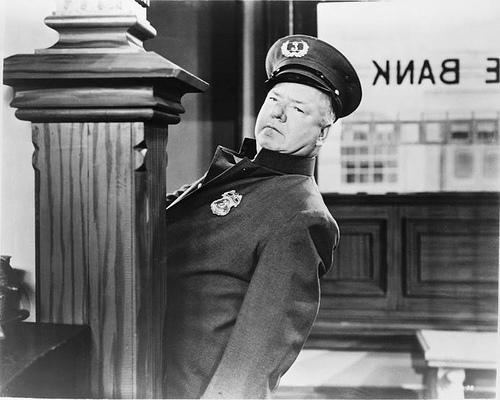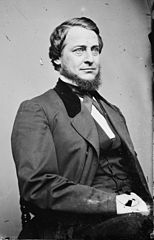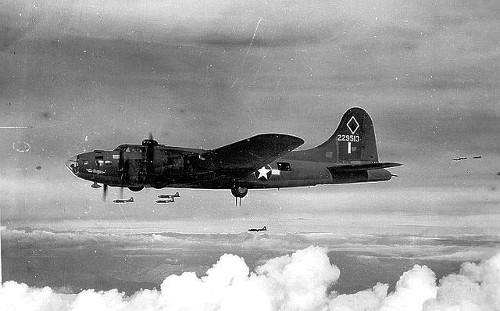Marvin Minsky invented this machine at Bell Labs in 1952:
Arthur C. Clarke wrote, “It sits on Claude Shannon’s desk driving people mad.”
Marvin Minsky invented this machine at Bell Labs in 1952:
Arthur C. Clarke wrote, “It sits on Claude Shannon’s desk driving people mad.”
In 1959, as he prepared the seventh edition of his Textbook of Pediatrics, Waldo E. Nelson enlisted his family to help compile the index. Nelson would call out items from each page and his wife and three children would write them down on index cards.
Only after the book appeared did he notice this entry:
Birds, for the, 1-1413
It was removed in the next edition. The culprit, Nelson’s daughter Ann, later married pediatrician Richard E. Behrman — after he promised never to ask her to help him write a textbook.

redamancy
n. the act of loving in return
Zelda to Scott Fitzgerald, spring 1919 or 1920:
I look down the tracks and see you coming – and out of every haze & mist your darling rumpled trousers are hurrying to me – Without you, dearest dearest I couldn’t see or hear or feel or think – or live – I love you so and I’m never in all our lives going to let us be apart another night. It’s like begging for mercy of a storm or killing Beauty or growing old, without you. I want to kiss you so – and in the back where your dear hair starts and your chest – I love you – and I can’t tell you how much – To think that I’ll die without your knowing – Goofo, you’ve got to try to feel how much I do – how inanimate I am when you’re gone – I can’t even hate these damnable people – Nobodys got any right to live but us – and they’re dirtying up our world and I can’t hate them because I want you so – Come Quick – Come Quick to me – I could never do without you if you hated me and were covered with sores like a leper – if you ran away with another woman and starved me and beat me – I still would want you I know –
Lover, Lover, Darling –
Your Wife

When John Barrymore was on his deathbed in 1942, he received a wire from W.C. Fields.
It said YOU CAN’T DO THIS TO ME.
“In all the proof that has reached me, windrow has been spelled window. If, in the bound book, windrow still appears as window, then neither rain nor hail nor gloom of night nor fleets of riot squads will prevent me from assassinating the man who is responsible. If the coward hides behind my finding, I shall step into Scribner’s and merely shoot up the place Southern style.” — American author Gordon Dorrance (1890-1957), note to his publishers
“By the way, would you convey my compliments to the purist who reads your proofs and tell him or her that I write in a sort of broken-down patois which is something like the way a Swiss-waiter talks, and that when I split an infinitive, God damn it, I split it so it will remain split, and when I interrupt the velvety smoothness of my more or less literate syntax with a few sudden words of barroom vernacular, this is done with the eyes wide open and the mind relaxed and attentive. The method may not be perfect, but it is all I have.” — Raymond Chandler, to the editor of The Atlantic Monthly
A publisher once took the liberty of editing an introduction that Mark Twain had contributed to a book on Joan of Arc. Twain returned a commentary on the edits. Some highlights:
The full list is in his autobiography. “It cost me something to restrain myself and say these smooth and half-flattering things to this immeasurable idiot,” Twain wrote, “but I did it and have never regretted it. For it is higher and nobler to be kind to even a shad like him than just. If we should deal out justice only, in this world, who would escape?”
Letter from Lewis Carroll to Adelaide Paine, March 8, 1880:
My dear Ada, — (Isn’t that your short name? ‘Adelaide’ is all very well, but you see when one’s dreadfully busy one hasn’t time to write such long words — particularly when it takes one half an hour to remember how to spell it — and even then one has to go and get a dictionary to see if one has spelt it right, and of course the dictionary is in another room, at the top of a high bookcase — where it has been for months and months, and has got all covered with dust — so one has to get a duster first of all, and nearly choke oneself in dusting it — and when one has made out at last which is dictionary and which is dust, even then there’s the job of remembering which end of the alphabet ‘A’ comes — for one feels pretty certain it isn’t in the middle — then one has to go and wash one’s hands before turning over the leaves — for they’ve got so thick with dust one hardly knows them by sight — and, as likely as not, the soap is lost, and the jug is empty, and there’s no towel, and one has to spend hours and hours in finding things — and perhaps after all one has to go off to the shop to buy a new cake of soap — so, with all this bother, I hope you won’t mind my writing it short and saying, ‘My dear Ada’).
You said in your last letter that you would like a likeness of me; so here it is, and I hope you will like it. I won’t forget to call the next time but one I’m in Wallington.
Your very affectionate friend,
Lewis Carroll

Clement Vallandigham accidentally shot himself demonstrating how one might accidentally shoot oneself. The Ohio lawyer was representing a defendant accused of killing a man in a barroom brawl. Vallandigham wanted to show that the victim might have shot himself while trying to draw his pistol from a kneeling position.
“I’ll show you how Tom Myers shot himself,” he said to his fellow defense attorneys in discussing the case. He put a gun into his pocket and began to draw it. “There, that’s the way Myers held it,” he said, “only he was getting up, not standing erect.” And he touched the trigger.
“A sudden flash — the half suppressed sound of a shot — and Clement L. Vallandigham, with an expression of agony, exclaimed: ‘My God, I’ve shot myself!’ and reeled toward the wall a wounded and dying man — wounded and dying by his own hands.”
He died of peritonitis, but he’d proved his point — the defendant was acquitted.

In December 1943, American bomber pilot Charlie Brown was flying a severely damaged B-17 out of Germany when he looked out the cockpit window and saw “the world’s worst nightmare” off his right wing — a fully armed German fighter whose pilot was staring back at him.
In this episode of the Futility Closet podcast we’ll follow the strange drama that ensued, in which German fighter ace Franz Stigler weighed the human impulse to spare the wounded bomber against his patriotic duty to shoot him down. We’ll also consider whether animals follow the 10 commandments and wonder why a man might tell his nephew that his dog will be shot.
The Barossa Reservoir dam in South Australia is a “whispering wall” — sound hugs the arc of the dam, so two people at opposite ends of the 140-meter span can have a conversation that’s inaudible to those in the middle.
There’s a whispering arch outside the Oyster Bar in Grand Central Station — a feature that has some creative uses:
See Oops.